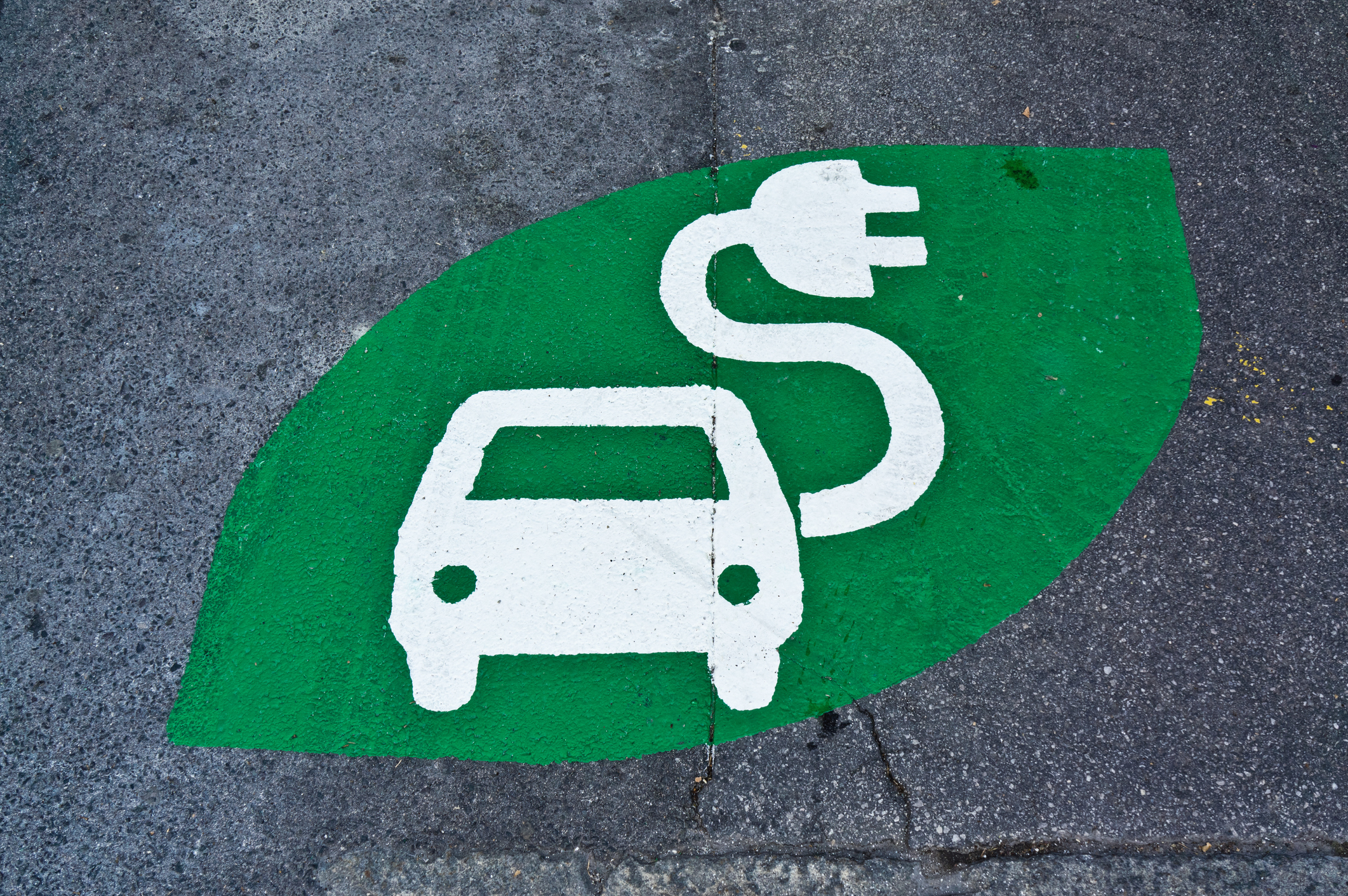Electric Car Owners Can’t Avoid Road Taxes in 2025
Hawaii launched its new EV road usage fee in July. Here’s why some states are implementing similar new electric vehicle taxes across the nation.


Profit and prosper with the best of Kiplinger's advice on investing, taxes, retirement, personal finance and much more. Delivered daily. Enter your email in the box and click Sign Me Up.
You are now subscribed
Your newsletter sign-up was successful
Want to add more newsletters?

Delivered daily
Kiplinger Today
Profit and prosper with the best of Kiplinger's advice on investing, taxes, retirement, personal finance and much more delivered daily. Smart money moves start here.

Sent five days a week
Kiplinger A Step Ahead
Get practical help to make better financial decisions in your everyday life, from spending to savings on top deals.

Delivered daily
Kiplinger Closing Bell
Get today's biggest financial and investing headlines delivered to your inbox every day the U.S. stock market is open.

Sent twice a week
Kiplinger Adviser Intel
Financial pros across the country share best practices and fresh tactics to preserve and grow your wealth.

Delivered weekly
Kiplinger Tax Tips
Trim your federal and state tax bills with practical tax-planning and tax-cutting strategies.

Sent twice a week
Kiplinger Retirement Tips
Your twice-a-week guide to planning and enjoying a financially secure and richly rewarding retirement

Sent bimonthly.
Kiplinger Adviser Angle
Insights for advisers, wealth managers and other financial professionals.

Sent twice a week
Kiplinger Investing Weekly
Your twice-a-week roundup of promising stocks, funds, companies and industries you should consider, ones you should avoid, and why.

Sent weekly for six weeks
Kiplinger Invest for Retirement
Your step-by-step six-part series on how to invest for retirement, from devising a successful strategy to exactly which investments to choose.
If you purchased an electric vehicle, that doesn’t mean you get to bypass road taxes.
Dozens of states have implemented taxes and registration fees targeting EV owners. That way, commuters can contribute what some lawmakers see as their “fair share” of highway funding, which is often collected via gas (motor fuel) taxes.
The latest addition to that list is Hawaii, which just launched its new state road usage charge program on July 1 for light-duty passenger electric vehicles.
From just $107.88 $24.99 for Kiplinger Personal Finance
Become a smarter, better informed investor. Subscribe from just $107.88 $24.99, plus get up to 4 Special Issues

Sign up for Kiplinger’s Free Newsletters
Profit and prosper with the best of expert advice on investing, taxes, retirement, personal finance and more - straight to your e-mail.
Profit and prosper with the best of expert advice - straight to your e-mail.
Eligible EV owners in the Aloha State can opt to pay a state per-mile road usage charge of $8 per 1,000 miles, which is capped at $50 per year, or pay a flat annual state road user charge (RUC) of $50.
Both of these options replace the state’s current $50 EV registration surcharge, according to Hawaii’s Department of Transportation. By 2028, the state-per-mile RUC will become mandatory for EVs, and by 2033, it should include all light-duty vehicles.
“Instead of paying based on what type of car you drive — or can afford — a road usage charge means vehicle owners will pay only for how much they actually drive,” said Ed Sniffen, Hawaii’s Department of Transportation (DOT) Director.
While opting for an electric vehicle may come with higher annual fees or taxes, getting a federal EV tax credit worth up to $7,500 was a popular incentive.
Here’s the problem: The federal tax credit for clean vehicles is likely going away under President Donald Trump’s so-called “big beautiful bill” which Republicans aim to pass by the Fourth of July.
Read on to see if switching to an electric vehicle will still be a worthwhile investment for you.
Road taxes for EV drivers
As you may have guessed, road infrastructure and maintenance are paid for by federal, state, and local government revenue.
The funding to keep roads safe is gathered through a combination of taxes on motor fuel, fees on vehicles like registration and licensure, and tolls.
As more people switch to EVs, some states have implemented added fees to make up for lost gas tax revenue. These include:
- Higher registration fees compared to gasoline-powered vehicles
- Imposing pay-per-mile programs or an annual road usage fee so EV and hybrid drivers can contribute to road infrastructure
- Taxing electric vehicle drivers at higher rates
How high can EV registration fees go? In Colorado, you can expect to pay $50 if you’re registering an electric vehicle. However, in New Jersey, you’ll pay a registration fee as high as $290 starting in 2028. These fees vary depending on where you live.
Does your state have EV registration fees?
There are currently 39 states that require additional registration fees from electric vehicle drivers. If you’re in the market for an EV, some of these fees can make you think twice.
High upfront charges: In Texas, you’ll have to pay $400 for the registration of a new EV on top of standard registration fees. This initial payment covers the first two years of registration. For each subsequent year, you’ll have to pay a $200 annual fee. These fees are directed to the state’s highway funding.
Inflation adjustments: Folks in Pennsylvania who want to purchase an electric vehicle will also be hit by a $200 annual EV registration fee, which will increase to $250 in 2026. The registration fee will be indexed to inflation for subsequent years. Likewise, annual plug-in hybrid registration models will cost you $50 in 2025 and $62.50 next year, which is also adjusted for inflation.
Pay upon weight: In Oklahoma, the amount you pay on annual registration fees is based on the weight of your EV or hybrid vehicle. An EV vehicle under 6,000 lbs. will set you back $110, while a vehicle over 26,000 lbs. can cost you $2,250.
Trump’s bill kills EV tax credit
To encourage commuters to purchase electric vehicles and promote clean energy, the Biden administration’s Inflation Reduction Act (IRA) included a federal tax credit worth up to $7,500 for qualifying “clean vehicles.
The EV tax credit, which is also eligible for some used electric cars, was supposed to be in place until December 2032. However, it's now on the GOP chopping block under Trump’s newly enacted legislative tax package known as the “One Big Beautiful Bill Act.”
As reported by Kiplinger, the megabill will eliminate the EV tax credit for new, used, and leased vehicles. What does that look like?
- Republican lawmakers will eliminate the $7,500 tax credit for the purchase or lease of a new EV.
- The $4,000 tax break for the purchase of a used EV will also end.
- The EV tax credit will sunset after September 2025.
That means if you’d like to purchase an EV and still get a tax break, this year (the coming months) will be your last chance to snag that tax incentive before it's gone.
Stay tuned to Kiplinger’s coverage on Trump's "big, beautiful bill," as some of the measures in it will impact everyday choices from major purchases that promote clean energy, like your vehicle or solar panels, to crucial tax breaks for families and your access to healthcare.
Read More
- Why Homeowners Are Rushing to Install Solar Panels
- Is the EV Tax Credit Going Away Under Trump?
- Save More with Tax Credits for Energy-Efficient Home Improvements While You Still Can
Profit and prosper with the best of Kiplinger's advice on investing, taxes, retirement, personal finance and much more. Delivered daily. Enter your email in the box and click Sign Me Up.

Gabriella Cruz-Martínez is a finance journalist with 8 years of experience covering consumer debt, economic policy, and tax.
Gabriella’s work has also appeared in Yahoo Finance, Money Magazine, The Hyde Park Herald, and the Journal Gazette & Times-Courier.
As a reporter and journalist, she enjoys writing stories that empower people from diverse backgrounds about their finances, no matter their stage in life.
-
 Quiz: Do You Know How to Avoid the "Medigap Trap?"
Quiz: Do You Know How to Avoid the "Medigap Trap?"Quiz Test your basic knowledge of the "Medigap Trap" in our quick quiz.
-
 5 Top Tax-Efficient Mutual Funds for Smarter Investing
5 Top Tax-Efficient Mutual Funds for Smarter InvestingMutual funds are many things, but "tax-friendly" usually isn't one of them. These are the exceptions.
-
 AI Sparks Existential Crisis for Software Stocks
AI Sparks Existential Crisis for Software StocksThe Kiplinger Letter Fears that SaaS subscription software could be rendered obsolete by artificial intelligence make investors jittery.
-
 Trump $10B IRS Lawsuit Hits an Already Chaotic 2026 Tax Season
Trump $10B IRS Lawsuit Hits an Already Chaotic 2026 Tax SeasonTax Law A new Trump lawsuit and warnings from a tax-industry watchdog point to an IRS under strain, just as millions of taxpayers begin filing their 2025 returns.
-
 Law Reversal Looming? Trump Eyes 2026 Gambling Winnings Tax Change
Law Reversal Looming? Trump Eyes 2026 Gambling Winnings Tax ChangeTax Deductions It's no secret that the IRS is coming after your gambling winnings in 2026. But how long will that last?
-
 Trump's Plan to Eliminate Income Tax: 7 Things to Know Now
Trump's Plan to Eliminate Income Tax: 7 Things to Know NowTax Policy The potential consequences of eliminating taxes in favor of Trump tariffs could impact everything from inflation to Social Security and might give some U.S. taxpayers pause.
-
 Costco Sues Over Trump Tariffs: What Could That Mean for Prices in 2026?
Costco Sues Over Trump Tariffs: What Could That Mean for Prices in 2026?Tariffs The retailer is making headlines not just for its famous hot dog and gold bars but for suing the Trump administration over tariffs.
-
 Are New Trump $2,000 Stimulus Payments Coming in 2026? What to Know Now
Are New Trump $2,000 Stimulus Payments Coming in 2026? What to Know NowTax Policy A promise of $2,000 tariff dividend checks is raising questions and fueling confusion.
-
 Could Tax Savings Make a 50-Year Mortgage Worth It?
Could Tax Savings Make a 50-Year Mortgage Worth It?Buying a Home The 50-year mortgage proposal by Trump aims to address the housing affordability crisis with lower monthly mortgage payments. But what does that mean for your taxes?
-
 Trump 2025 Tax Bill: What’s Changed and How It Affects Your Taxes
Trump 2025 Tax Bill: What’s Changed and How It Affects Your TaxesTax Law From standard deduction amounts to tax brackets and Medicaid cuts, here’s what individual filers need to know about tax changes in Trump's "big beautiful bill."
-
 Health Insurance Tax Credits and the Government Shutdown: What to Know
Health Insurance Tax Credits and the Government Shutdown: What to KnowTax Credits Previous shutdowns have occurred for various reasons, including border wall funding. But this time, the standoff centered in part on health care and taxes.